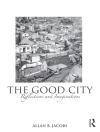Challenging the main ways we debate globalization,
Global Displacements reveals how uneven geographies of capitalist development shape—and are shaped by—the aspirations and everyday struggles of people in the global South.
- Makes an original contribution to the study of globalization by bringing together critical development and feminist theoretical approaches
- Opens up new avenues for the analysis of global production as a long-term development strategy
- Contributes novel theoretical insights drawn from the everyday experiences of disinvestment and precarious work on people’s lives and their communities
- Represents the first analysis of increasing uneven development among countries in the Caribbean
- Calls for more rigorous studies of long accepted notions of the geographies of inequality and poverty in the global South
Innehållsförteckning
Series Editors’ Preface vi
List of Abbreviations vii
List of Figures and Tables ix
Acknowledgements x
1 Introduction: Power and Difference in Global Production 1
2 Two Stories of Caribbean Development: Garments‐as‐ Globalization and Garments‐as‐Regional Entrepreneurialism 28
3 From Manufactura to Mentefactura? Gender and Industrial Restructuring in the Dominican Republic 54
4 Embodied Negotiations: Geographies of Work after Trade Zones 85
5 Reworking Coloniality through the Haitian–Dominican Border 113
6 Haiti, the Global Factory and the Politics of Reconstruction 141
7 Unsettling Dominant Crisis Narratives of the Caribbean 163
8 Conclusion 181
Bibliography 187
Index 206
Om författaren
Marion Werner is an Assistant Professor in the Department of Geography at the University at Buffalo, SUNY. Her research lies at the intersection of critical development studies, feminist theory, and political economy with a focus on Latin America and the Caribbean.












